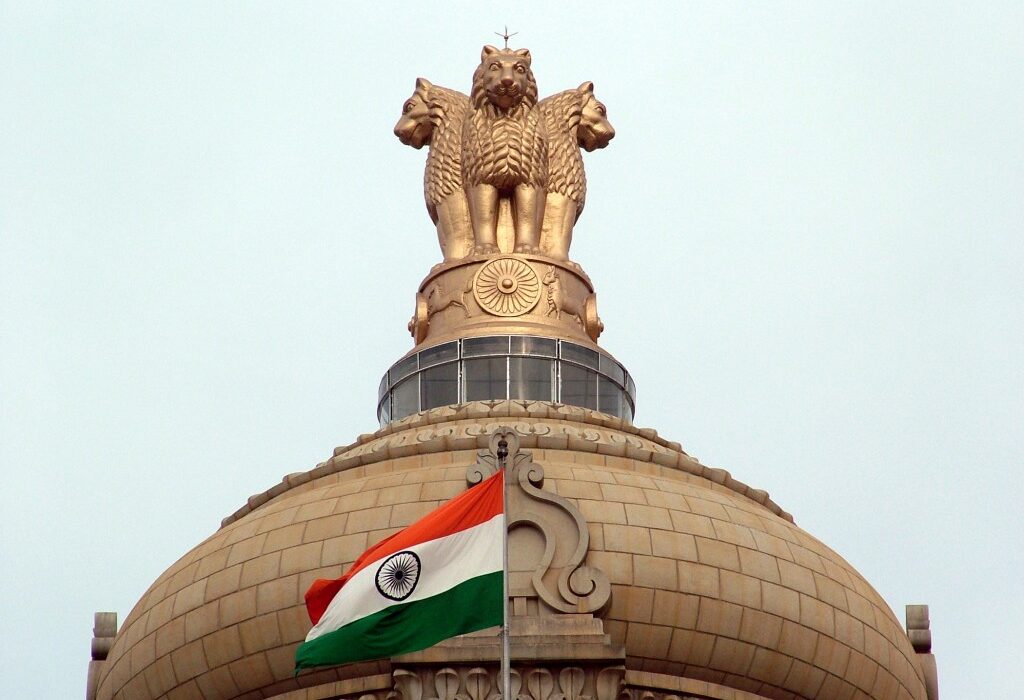The Indian government has reaffirmed its stance on cryptocurrency regulation, emphasizing a ban on private cryptocurrencies while actively exploring blockchain technology to support the digital economy. Minister of State for Finance Pankaj Chaudhary clarified in the Rajya Sabha that cryptocurrencies are not considered legal tender and outlined measures to prevent their misuse in illegal activities or payment systems.
This article delves into the government’s position on private cryptocurrencies, its blockchain initiatives, and steps taken to recover money from defaulters.
Government Stance on Cryptocurrencies
Private Cryptocurrencies to be Banned
- The government remains firm in its decision to ban private cryptocurrencies, except for a digital currency issued by the government.
- A High-Level Inter-Ministerial Committee (IMC), chaired by the Secretary, recommended prohibiting private cryptocurrencies to curb misuse and regulate the crypto space.
Measures Against Misuse
Minister Pankaj Chaudhary stated:
“The government does not consider cryptocurrencies to be legal money or coins and will take all necessary steps to prevent their use in financing illegal operations or as part of the payment system.”
Blockchain Technology: A Key Focus Area
While the government is firm on regulating private cryptocurrencies, it acknowledges the potential of blockchain technology in building a robust digital economy.
- Aggressive Exploration: Blockchain will be a cornerstone in driving the next wave of technological advancements and digitization.
- Strategic Implementation: The government aims to integrate blockchain into various sectors, including finance, supply chain, and public administration, to enhance transparency and efficiency.
Potential Legislative Proposals
The government is evaluating the IMC’s recommendations and may submit legislative proposals to Parliament.
- Process: Proposals will follow proper legislative channels for approval.
- Impact: Clear regulations could provide clarity to businesses and investors, encouraging innovation within the boundaries of the law.
Efforts to Recover Money from Defaulters
Progress by Public Sector Banks (PSBs)
Minister of State for Finance Bhagwat Karad highlighted significant recoveries from defaulters:
- Total Recovered: ₹4,52,480 crore over the last five financial years.
- Wilful Defaulters: ₹20,334 crore recovered from wilful defaulters by March 31, 2021.
Trends in Wilful Defaults
- Data from RBI:
- Individual wilful defaulters increased to 248 in 2019-20.
- Fell to 156 in 2020-21, suggesting improved enforcement and recovery mechanisms.
- Gross NPAs: As reported to CRILC, they accounted for 66.8% of total gross NPAs, highlighting the scale of bad loans in the banking sector.
Impact of Private Cryptocurrency Ban
1. Industry Concerns
The ban on private cryptocurrencies has sparked concerns about stifling innovation and alienating global investors in India’s burgeoning crypto market.
- Crypto businesses and investors are urging for a balanced regulatory approach rather than a blanket ban.
2. Blockchain Opportunities
While private cryptocurrencies face scrutiny, blockchain technology is expected to gain traction across industries, paving the way for innovation in finance and governance.
3. Consumer Protection
Banning private cryptocurrencies aims to mitigate risks such as fraud, money laundering, and illicit financing, ensuring greater consumer protection.
FAQs
What is India’s stance on private cryptocurrencies?
India plans to ban all private cryptocurrencies while supporting blockchain technology and government-issued digital currencies.
What steps is the government taking against crypto misuse?
The government will enforce stricter measures to prevent the use of cryptocurrencies in illegal activities and as part of the payment system.
Will India introduce a central bank digital currency (CBDC)?
Although not confirmed, India’s focus on government-issued digital currencies suggests a potential move towards launching a CBDC.
How much money have PSBs recovered from defaulters?
Public Sector Banks recovered ₹4,52,480 crore from defaulters in the past five financial years and ₹20,334 crore from wilful defaulters as of March 2021.
What role does blockchain play in India’s digital economy?
Blockchain is expected to be a key driver of innovation, enabling transparency, efficiency, and digital transformation across various sectors.
What challenges does India face with its cryptocurrency regulation?
Key challenges include balancing innovation with consumer protection, preventing misuse, and aligning with global standards while fostering growth in the blockchain ecosystem.
Conclusion
India’s dual approach to cryptocurrency regulation—banning private cryptocurrencies while embracing blockchain technology—reflects a cautious but forward-looking strategy. While the decision may create uncertainty for crypto enthusiasts, the focus on blockchain innovation underscores the government’s commitment to fostering a secure and efficient digital economy.
As India navigates this complex regulatory landscape, the outcomes will significantly influence the future of blockchain and cryptocurrency in one of the world’s largest markets.
To learn more about the innovative startups shaping the future of the crypto industry, explore our article on latest news, where we delve into the most promising ventures and their potential to disrupt traditional industries.
Disclaimer: The information provided is not trading advice, Bitcoinworld.co.in holds no liability for any investments made based on the information provided on this page. We strongly recommend independent research and/or consultation with a qualified professional before making any investment decisions.




